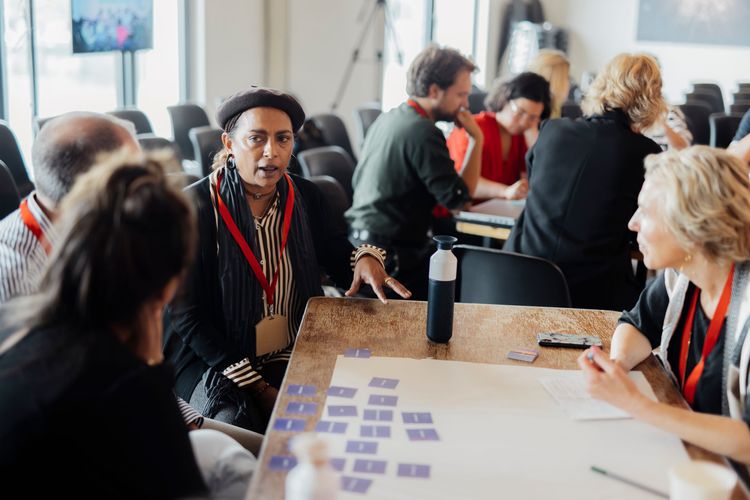Session: Datacommons Fieldlabs Workshop
https://conference.publicspaces.net/en/session/wo-1Naam/name Notulist: Lex LakeDatum/date: 28-06-2023 13:45Sprekersnamen/speaker names:
Shownotes
(mentioned links, books, podcasts, literature, etc.)Live notes (500-750 words)
Please use full sentences and write in the spoken language of the session / Graag volledige zinnen gebruiken en de taal aanhouden van de sessieMarjolein Bot set up Amsterdam Economic Board.
One of the things we're doing collaborations between small big parties governments, businesses. We are Data Commons Collective. We think we need to do more with data which is responsible and transparent.
Some slides from Marjolein.
There's a lot of research around data commons. What we as the data commons collective see as our defintiion of data commons, this is what it means to us (there are more definitions).
Natural resources are there for us, but we as humans have been exploiting these in the past. Principles of how to use or manage those resources that are called the commons.
Key ones about clearly defined boundaries, it's in the community you choose the ones you want to work with.
Data commons versus Commons. For example: Data commons are not exhausting, they are adding value as you use it more. Commons: There is a physical attachment to the common.
The principles of our data commons:- to serve a public goal
- it is collaboration between individuals/groups
- to agree Around the pricniple and conditions
- embed the ethicals within the common (to make sure the compliants are managed properly).
There are different field labs, four components are being investigated.
Energy Fieldlab: energy in households, and one in the industrial sphere.
What drives people to share their data? And in Agrifood: changing different value chains between farmers and supermarkets (for example).
We want to put these learnings together, so to make it easier to find the legal requirements and examples that others can use. That is our intention, there is a lot of traction in the different field labs.
Simone explains the workshop: you are your own little village and you focus on your energy commons and your energy use. Some of us have electric cars and others have solar panels, there will be peaks of energy use, and sometimes you use very little, while you are at work for example. Make sure that we don't get congestion problems and that we use the energy more evenly. Think of these four:
- Electricity net
- Users (companies, households)
- Sources of energy (solar panels, wind)
- Storing energy
Imagine that each of us is our own little village think about what would happen if you shared data about your energy use. So about when your neighbour is using energy or when you are, what you can do to even the use of energy out. Everyone has a vote in these communtiies, we have different wallets, backgrounds, education levels all this can play a role in what people think. Take into account for this ession: We will move past the current contractual limitations and laws, we want to move past that and what would happen if you agreed to share energy in your group! What principle do you want to start to share your energy together.
The Workshop is started: The groups choose their top three values, and then we go round the groups and then we whittle down the values. Marjolein and Simone guide and help the groups along.
